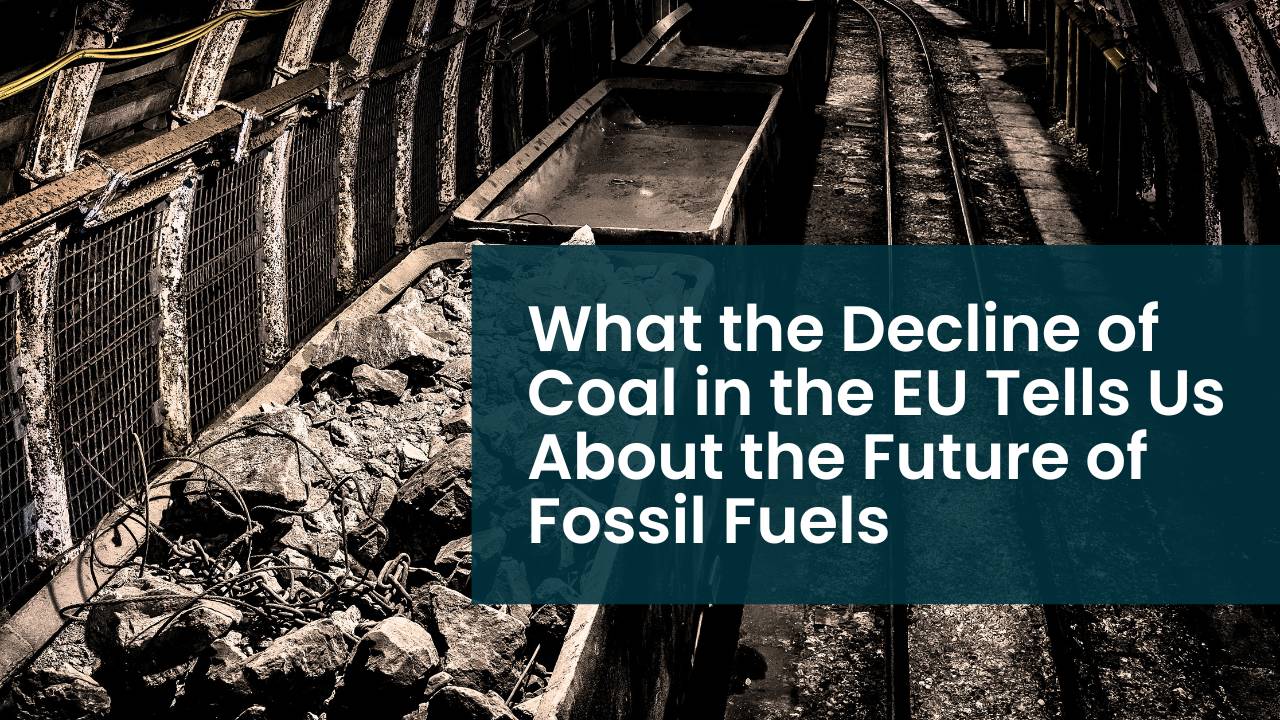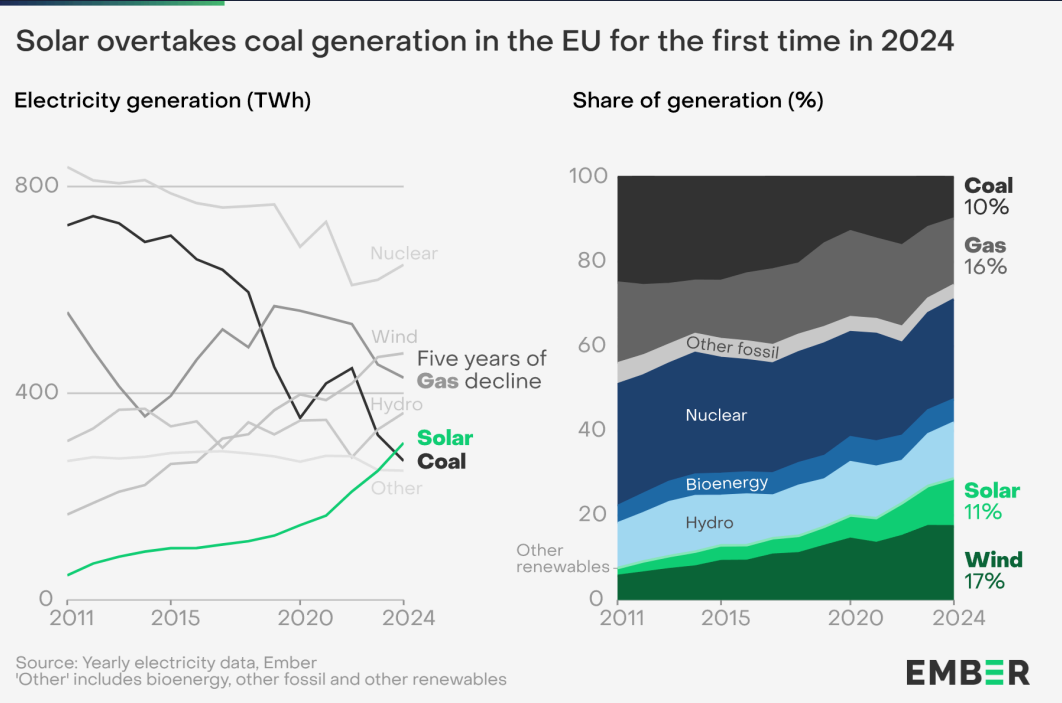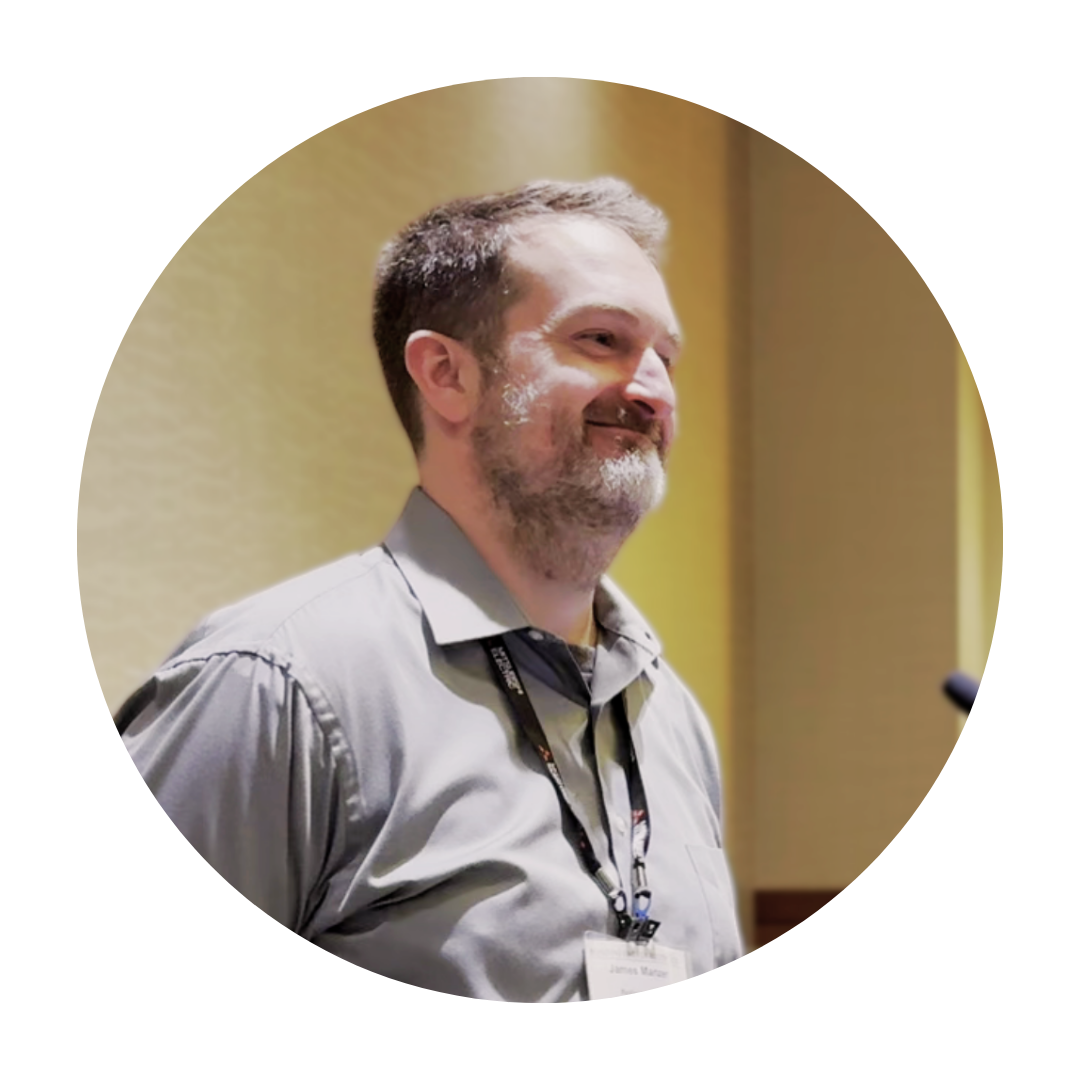What the Decline of Coal in the EU Tells Us About the Future of Fossil Fuels
May 19, 2025
Something big is happening in Europe. And the rest of the world will be seeing it, too.
For the first time ever, solar power generated more electricity than coal across the European Union. It’s a milestone moment that didn’t come out of nowhere. It’s the result of years of policy shifts, public investment, and the rapid scaling of clean energy technologies.
But here’s the bigger takeaway: this shift away from coal may be a preview of what’s to come globally. The fossil fuel era is winding down and it’s happening faster than many expected.
Coal Is on the Way Out
Back in 2019, coal was still the third-largest source of electricity in the EU. Fast forward to 2024, and it's slipped to sixth place. In just five years, solar and other renewables have fundamentally changed the energy mix.
In 2024 alone:
- Solar generation jumped 22% compared to 2023
- Solar provided 11% of the EU’s electricity
- Coal fell to just 10%, the lowest coal has ever dipped

Image source: EMBER
Gas Is Falling Too
Coal isn’t the only fossil fuel losing ground. Natural gas power generation has now declined five years in a row. Here’s what that looks like in numbers:
- EU gas use dropped 20% over the past five years.
- Roughly one-third of that drop came from the electricity sector alone.
That’s a major shift, especially for a continent that once relied heavily on imported gas. It’s also a win for energy security, as countries reduce their dependence on volatile global fossil fuel markets.
Clean Energy Is Saving Europe Billions
The EU’s shifting reliance on renewables for electricity generation doesn’t just help achieve ambitious climate goals, it also saves them money.
How much money? €59 billion, by some estimates.
That’s the amount that the EU saved by not importing 92 billion cubic meters of fossil gas, and 55 million tonnes of coal.
The electricity generated by solar, wind, and hydro was enough to cover billions worth of electricity from fossil gas and coal. Imagine that.
What Does This Mean for the Rest of the World?
What’s happening in the EU is an important piece of the puzzle. It shows what’s possible when countries commit to a clean energy transition. And the rest of the world is starting to follow the same path.
- Global solar capacity grew by almost 60%, with 440+ gigawatts of new solar installed worldwide, which is the biggest annual increase ever.
- China added more solar capacity in 2024 than the entire world did in 2022 and it's planning even more in 2025.
- India saw a 27% increase in renewable energy installations last year and aims to meet 50% of its electricity needs from renewables by 2030.
- In the United States, wind and solar together generated more power than coal for the first time in 2023 and clean energy jobs are now growing faster than any fossil fuel sector.
Why? Because clean energy is proving to be cheaper, faster to deploy, and more resilient than fossil fuels.
The International Energy Agency (IEA) projects that by 2030, renewables will make up over 80% of new power capacity globally. Not only is it a forecast but it’s a reflection of what’s already underway.
Coal’s decline in the EU is not an isolated story. It’s a signpost pointing to the global shift ahead.
The message is clear: The energy systems of the future are being built right now – and they don’t run on coal.
What Comes Next?
The EU still has a long way to go. The rest of the world does, too. And before we can achieve a 100% sustainability when it comes to our energy use, we’ve got work to do.
To hit its 2030 targets under the European Green Deal, the EU must do more than stay the course. It needs to double the pace of wind power installations, rapidly scale up rooftop and utility-scale solar, and invest heavily in energy storage to handle the ups and downs of renewable generation.
Generating clean energy is just the first step. The real challenge (and opportunity) lies in making sure that energy is reliable, used efficiently, and shared fairly.
To address this, the EU is going beyond simply adding more renewables. It’s working to:
- Modernize its power grids to handle the rising demand from electric vehicles, heat pumps, and industry.
- Accelerate smart electrification, especially in buildings and transport, to make the most of clean power.
- Invest in clean flexibility, like batteries and demand response, to keep the grid reliable.
- Design policies for a just transition, ensuring that no worker or community is left behind.
And the payoff? Cleaner air, lower household energy bills, reduced geopolitical risk, and millions of new jobs.
This is just the beginning of the transformation renewable energy can bring.
What This Means For You
Even if you're not in the EU, the ripple effects are global and definitely personal. The clean energy shift is no longer just a thing that we only see in sci-fi movies. It’s already here. It’s growing. And it’s creating real opportunities right now.
That includes opportunities for:
- Skilled tradespeople to install solar, maintain wind turbines, and upgrade buildings.
- Project managers and planners to oversee large-scale infrastructure.
- Policy experts and communicators to shape public understanding and guide decisions.
- Community leaders and entrepreneurs to bring climate solutions to local neighborhoods.
In short, if you’ve been stuck in a job that feels disconnected from the future, this is it. This is your sign. This is your chance to work towards something better not only for the soul but also for the environment, economy, and your wallet.
The fossil fuel era is winding down. The clean energy revolution is hiring.
Whether you're pivoting your career, starting a business, or just looking to make a bigger impact, there's space for you in this transition.
Key Takeaways
Coal’s decline in the EU shows how quickly things can change when clean energy becomes the better option economically, environmentally, and politically. Countries that once depended on fossil fuels are now leaning on solar, wind, and hydro because they’re more affordable, more secure, and faster to build.
This shift is already changing how we power our lives. And with it comes a surge in real, hands-on work: installing solar, upgrading buildings, managing projects, shaping policies, and building systems that support communities. If you’re feeling stuck in a job that’s lost its meaning, this is your chance to move into something grounded, urgent, and impactful. The energy transition needs people with purpose. You could be one of them.
Final Thoughts: The Future Is Clean, Resilient, and Renewable
The fossil fuel era is ending. Clean energy is scaling fast. Whether you’re planning a career shift, building a business, or simply want to be part of the solution, this is your moment to act.
Step into the clean energy movement before the world leaves fossil fuels behind.

James Manzer, founder of SolarPunkPro, went from dead-end jobs to leading clean energy projects worldwide. With nearly 20 years of experience, he built the Electrify Everything and Power it with Renewables Masterclass to give you the practical skills and clear path he wished he had. Ready to build a meaningful career in clean energy? Let’s chart your next move.

